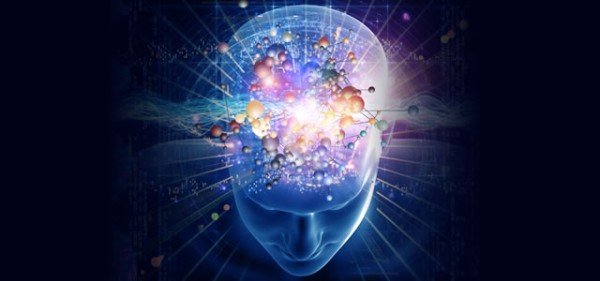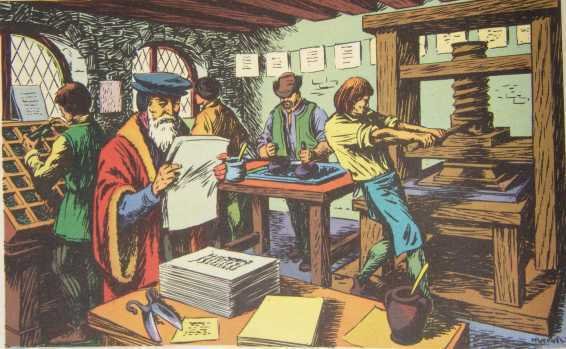My friend, @oisinmcn, had submitted his first article today and WOW! What a terrific post it is. As promotion for his article, I am reposting it. All proceedings (SBD) from this repost will be forwarded to him.
------

A number of years ago, while young, innocent and attending college for a brief moment I felt that human knowledge had reached a plateau. The kind of plateau I allude to here is one in which the foundation of all scientific knowledge has already been solidly placed and there are no new discoveries left uncovered that would upset contemporary sensibilities and our understanding of the universe at large. You know the kind of foundation laid down by folks like Newton, Galileo and Copernicus who ironically by establishing the very foundations of contemporary humanity's scientific knowledge upset the applecart of civilisation and pissed off a whole bunch of people while at it (lets face it folks people never like those people who rock the boat for no other reason than to see what happens when the boat does rock).
Yes, it is true I was an arrogant little pr*ck and yes I was just that stupid. It was only recently that I took the time to truly remember some of the more incredibly stupid musings of the past and wish for that thousandth time, the use of a time machine so I could do a Terminator and punch myself in the head and save everybody the trouble of me being...... well me. Unfortunately there will be no actual breaking of conventional wisdom here to day, but rather a very poor attempt in demonstrating that like the renaissance of the 16th century, the 21st century also has new frontiers to explore.
The printing press
As we all know in 1440, Johannes Gutenberg built the first printing press thus heralding the advent of the renaissance. The renaissance as we all know was pivotal in the evolution of the school of thought called humanism, which would lead to the development of many an intriguing and dastardly idea such as; equality, democracy and even that fiendish concept known as freedom. All of this terribly wonderful stuff founded on the evolution of a tool many know today as the printing press. Brilliant, bring on the guillotine.

With the ability to print books one could share and communicate a thought or idea, no matter how simple or complex. It was a revolutionary method that conveyed a new concept of mass communication, where once upon a time mass communication involved a town square and the services of someone with a very large voice. Now all one had to do was line up the printing blocks get the ink, the paper and voila the same message could be carried to the four corners of the world. The long drawen out musings of a philosopher could be printed in London one day and be read in Naples, Paris and Rome within months. Not only was it considerably faster than the previous painstaking method of copying each book by hand, I think it can be safe to say it was also considerably less tedious. But, the printing press had the rather uncanny consequence of allowing ideas to be spread and above all shared for all to read. Be it a treatise on the correct method of sheep rearing to an essay on drinking wine the 16th century promised a new dawn for the literary inclined.
Moving forward
Thats right folks the first blogger not a 20th century avant garde but rather the sixteenth century denizen Michel de Montaigne (1533 - 92). If the printing press opened the way towards a new dawn in communications and humanty's penchant to celebrate drivvel, than what does the advent of the digital age portent?
How can there not be a cross comparison between the invention of the printing press and the dawn of the internet. The metal blocks of the printing press evolved into the complex yet deceptively simple ones and twoes of binary, the book and the letter become the blog and email.

Today we are challenged by a similar conundrum as presented to those during the renaissance. How can we further develop the tools of communication and by doing so, find new and extraordinary methods to interface with information and each other. The printing press gave birth to the literary, the fictional and the ability to communicate up to date reports of events occuring around the world to the masses. It popularised literacy and subsequently the curiousity that would evoke the systematic study of the natural world which led to the wondrous discovery of science. With the immortalisation by print of such works by Montaigne and More, the works of Shakespeare, Montesquieu and Rousseau were inspired and immortalised. The reignition of philosophy facilitated by the printing press made it possible for the exchange of information that would lead the intelligentsia of every generation step by turbulent step further transform society into its current shape. Such is the power of the written, nay printed word that giants of ignorance were slain and lofty towers of enlightenment constructed. If the simple printing press can do all that it cannot but be asked what new wonders will the internet give birth tomorrow?
We have already witnessed the dawn of fast-paced communication with the invention of tweeting, video chat, the hyper sensationalised networking sites such as linkedln and facebook, and new information networks such as google. Today it is Steemit.com tomorrow it might just be Gibson's cyberspace made real. The fact that the digital age holds an almost infinite potential of being a driving force in the advancement of humanity as the printing press centuries prior tittilates the intellectual senses.
The development and birth of all these new interfaces through which we can communicate and interact can only be curtailed by the limitations of technology and of our imaginations. How else can the digital age be considered as the dawn of a second renaissance. I look forward to the second era of enlightenment.
-----
Original post
@oisinmcn, A Second Renaissance
Downvoting a post can decrease pending rewards and make it less visible. Common reasons:
Submit
Yes, @oisinmcn did an excellent job :)
Downvoting a post can decrease pending rewards and make it less visible. Common reasons:
Submit
Hi! I am a content-detection robot. This post is to help manual curators; I have NOT flagged you.
Here is similar content:
https://steemit.com/philosophy/@oisinmcn/a-second-renaissance
Downvoting a post can decrease pending rewards and make it less visible. Common reasons:
Submit
Hello, sweet little cheetah. This post is indeed a repost of @oisinmcn's article. I reposted it with the intent to give him more exposure. All proceedings (SBD's) will be forwarded to him, my friend. :)
Downvoting a post can decrease pending rewards and make it less visible. Common reasons:
Submit
Btw, I am glad to see how well you spot similar content! Good job, cheetah bot :D
Downvoting a post can decrease pending rewards and make it less visible. Common reasons:
Submit
That's why I hate when someone says that beasts are better than us, the humankind is awesome and those who try to prove us wrong, have another plans, if not to control us judging humankind as dumb and a species that need a guidance
Downvoting a post can decrease pending rewards and make it less visible. Common reasons:
Submit
Yes, I agree. We should have more respect for our own kind and try to live with what is natural to us: using our brains and improve our living standards. I'm not saying that other animals or nature itself should be ruined.
Downvoting a post can decrease pending rewards and make it less visible. Common reasons:
Submit
Of course not, I'm just saying that we don't need government
Downvoting a post can decrease pending rewards and make it less visible. Common reasons:
Submit
https://steemit.com/steemit/@razvanelulmarin/help-me-upvote-you take a look here, this post can edited to improve its readability!!
Downvoting a post can decrease pending rewards and make it less visible. Common reasons:
Submit
@chhaylin very interesting concept helping understanding the evolution of the information era :)
Downvoting a post can decrease pending rewards and make it less visible. Common reasons:
Submit
Downvoting a post can decrease pending rewards and make it less visible. Common reasons:
Submit
I see what you have accomplished with my post and all i have to say is wow in comparison to my article this looks incredibly well put together. I am also glad that people enjoyed reading it as it is a refreshing change of pace in comparison to the usual self criticisim.
Downvoting a post can decrease pending rewards and make it less visible. Common reasons:
Submit